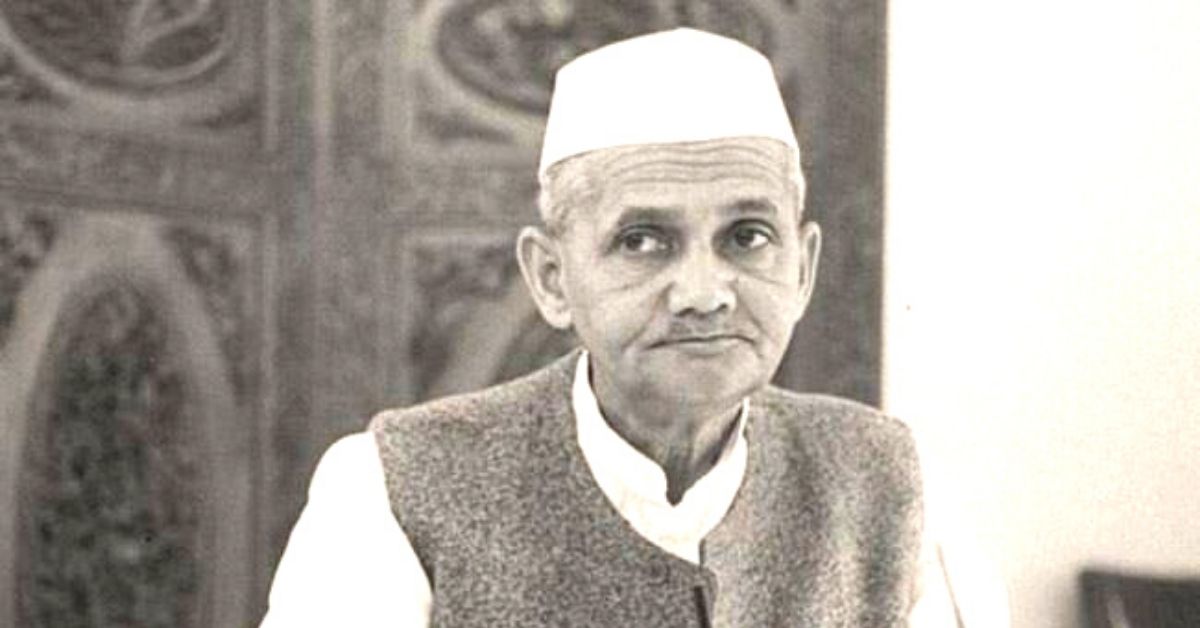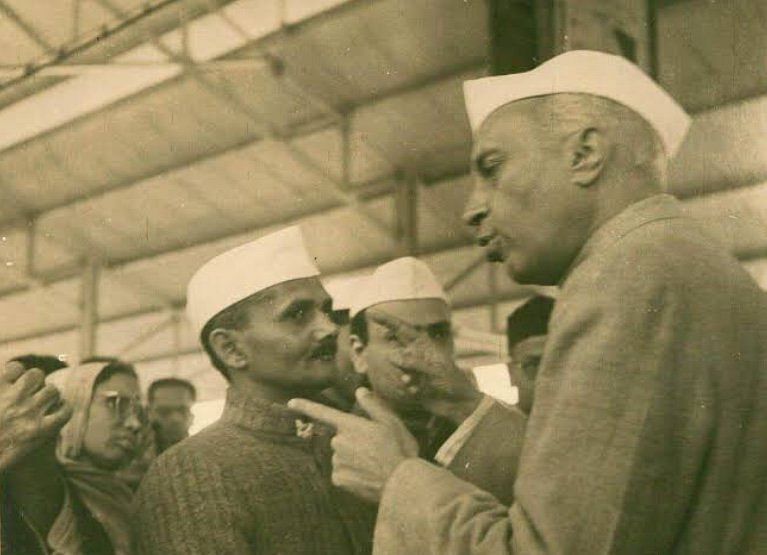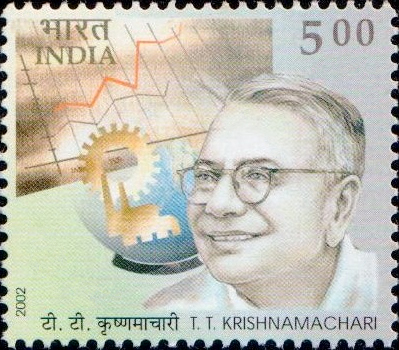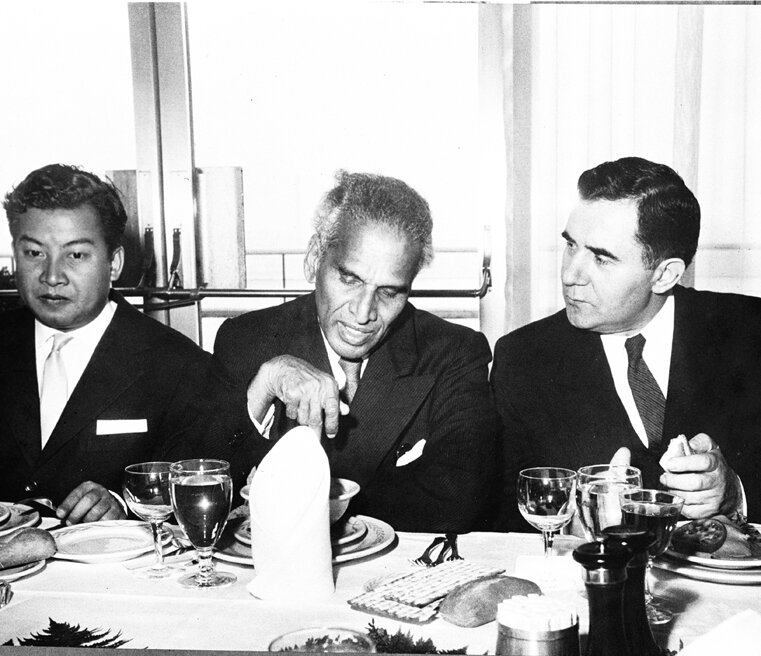5 Indian Politicians Who Resigned On Moral Grounds After a Disaster
Following the massive port explosion in Beirut which killed over 200 people, the Lebanese government resigned. This is about accountability at the highest levels of government.

Nearly a week after a devastating explosion in Beirut killed over 200 people, wounded 6,000, and left nearly 300,000 homeless, the Lebanon government resigned as its Prime Minister Hassan Diab blamed the detonation of highly explosive material warehoused at the capital’s port as being “the result of endemic corruption.” As a result, his government had to resign on moral grounds.
According to an Al Jazeera report, the Prime Minister said in a televised statement, “This crime was a result of corruption that is bigger than the state” and that he was taking “a step back” so he could stand with the people “and fight the battle for change alongside them”.
Political resignations primarily happen for two reasons — either to take the moral high ground or be used as a strategy to push rivals on the backfoot. For it to work, however, the said politician needs to have a fairly clean image.
Here are five instances when Indian politicians resigned on moral grounds:
1) Lal Bahadur Shastri
As Railway Minister under Prime Minister Jawaharlal Nehru, Lal Bahadur Shastri tendered his resignation on two occasions. The first time he sent his resignation to Nehru was after a major railway accident in Mahabubnagar, Andhra Pradesh, in August 1956 when 112 people died. Taking moral responsibility for the accident, he resigned but Nehru persuaded him to do otherwise.
However, when there was another railway accident in Ariyalur, Tamil Nadu, a few months later in November, when 144 were killed, Shastri submitted his resignation and “pleaded for its early acceptance,” writes his biographer Sandeep Shastri.
Suffice it to say, Shastri was not personally responsible for the accident on account of a technical failure, which was the responsibility of the Railway Board according to his fellow Parliamentarians. There were attempts both by Nehru and his fellow MPs to not accept the resignation, but Shastri was adamant and had his way.

2) VP Singh
When Prime Minister Rajiv Gandhi shifted VP Singh from the Finance Ministry to Defence Ministry in January 1987 because of his relentless tax raids that hauled many industrialists and businessmen to jail, few knew what would happen next.
A few months prior, Singh had authorised his officials to hire a private American detective agency, the Fairfax Group, to discover wealthy Indians who had stashed their black money in foreign banks operating across different tax havens. By coincidence or design, Fairfax went after Prime Minister Gandhi’s friends and acquaintances as well.
After getting a lot of stick from his party colleagues, VP Singh tore apart Gandhi’s claims of no middlemen in defence deals concerning the Indian government and that if any arms supplier hired one they would be disqualified from the bidding process. Based on a secret telegram he received from the Indian ambassador in West Germany, VP Singh found out that “that an agent was paid commission for the purchase of two submarines from HDW,” writes veteran reporter Inder Malhotra. Singh ordered an inquiry, and before Gandhi could react the newspapers reported on it the following morning. Singh eventually resigned and was soon expelled from the party.
3) TT Krishnamachari
In 1957, India became witness to its first major political scam which resulted in the resignation of Finance Minister TT Krishnamachari.
“It emerged, over the next few months, that in June 1957 the public-sector Life Insurance Corporation (LIC) had bought 1.24 crore, or 12.4 million rupees, worth of fraudulent stock in six companies owned by Haridas Mundhra, a Calcutta-based businessman. The investment was the largest that LIC had made in its short history, but contrary to regulations, its investment committee had not been consulted on the decision,” notes the New York Times.
According to veteran business reporter Sucheta Dalal, there was evidence that Mundhra “was bleeding the companies and siphoning off large chunks of money, while simultaneously operating in the market and rigging up prices as cover to his own sales of these scripts.”
The NYT report goes onto state, “Ostensibly, the shares were purchased by LIC to stabilize the market; in reality, they had the effect of bailing out a suspect businessman, and the puzzling order to do so seemed to have come from within the highest reaches of government.”
What followed was an inquiry ordered by Prime Minister Nehru, which was to be headed by former chief justice MC Chagla, who submitted his report in less than a month. The hearings of the Chagla commission were held in public with massive crowds attending. When Chagla submitted his report, Krishnamachari resigned on 18 February 1958 even though the commission had said nothing about his personal complicity.

4) VK Krishna Menon
Some political figures are destined to be remembered by their failures more than their successes. Whether that’s fair or not is a discussion for another day. As a statesman, Krishna Menon had the unique ability to cut through the fog, identify core concerns and deliver solutions.
As India’s representative to the United Nations, he almost facilitated the opening of diplomatic channels between China and the United States, played a role in bringing the Korean War to an end and was deeply involved in the resolution of the crisis emanating out of the nationalisation of the Suez Canal. As Defence Minister, he played a critical hand in the annexation of Goa from the Portuguese colonialists in 1961, and admonished any criticism by Western powers for India’s actions as “vestige(s) of Western Imperialism”.
However, his downfall came the following year after the India-China War. Following a crushing defeat at the hands of China, Menon received sharp criticism from both within and outside Parliament for his ineffectiveness and poor handling of India’s military preparedness. He eventually tendered multiple resignations, the last of which was sent to Prime Minister Nehru on 7 November 1962.

5) Keshav Dev Malviya
A chemical engineer by trade, Malviya was deeply involved in the anti-British struggle, particularly during the Quit India Movement when he was engaged in orgganizing anti-British activities and setting up a clandestine broadcasting unit. Post Independence, Malviya played a stellar role in building up India’s domestic oil industry much to the chagrin of foreign oil multinationals. But everything changed in 1963.
“Keshav Dev Malviya had done much, as Minister in the central Government, to develop oil prospecting in India without allowing foreign companies to dominate the field. Now it became known that he had requested a private firm to assist a Congress candidate in the elections. The sum involved was relatively small and Nehry believed that the firm had derived no kind of benefit, direct or indirect, in return for such assistance. But the issue could not be shirked,” writes Sarvepalli Gopal in Jawaharlal Nehru: A Biography.
Nehru asked a Supreme Court judge to conduct a private inquiry, which found some substance to the allegations against Malviya, who resigned. “So, Nehru, acting solely on his own, took the right step [reluctantly accepting Malviya’s resignation]; but he was unhappy about it for he was convinced of Malviya’s honesty and probity,” adds Gopal.
(Edited by Gayatri Mishra)
If you found our stories insightful, informative, or even just enjoyable, we invite you to consider making a voluntary payment to support the work we do at The Better India. Your contribution helps us continue producing quality content that educates, inspires, and drives positive change.
Choose one of the payment options below for your contribution-
By paying for the stories you value, you directly contribute to sustaining our efforts focused on making a difference in the world. Together, let’s ensure that impactful stories continue to be told and shared, enriching lives and communities alike.
Thank you for your support. Here are some frequently asked questions you might find helpful to know why you are contributing?


This story made me
-
97
-
121
-
89
-
167













